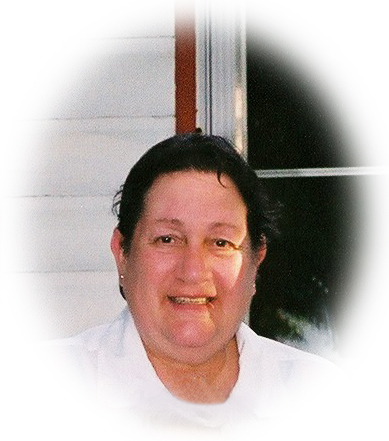MANITOULIN – Co-dependence Anonymous (CODA) is a group that provides mutual support for those seeking to follow a 12 step program that leads away from self destructive behaviour and helps them to develop healthier relationships.
“I was travelling to a group in Sudbury when I suddenly realized that there were a lot of people from the Island going to the meetings,” said Jane Doe (a pseudonym in keeping with the anonymity of the program). The idea of starting up a group closer to home soon followed and CODA Manitoulin was born.
“It’s all about self awareness and responsibility,” explained John Doe, a male member of the group who began attending the Manitoulin meetings a couple of weeks ago. He said that he first came in contact with the CODA movement nearly eight years ago and had struggled with self medication issues and addictions. “I had spent quite a bit of time avoiding responsibility and had fallen into dependency and addictions. In my experience, codependence tends to be the root cause.”
To be clear, however, addictions or dependency is not a prerequisite. Many of the root causes of the behaviour can be traced to challenges in an individual’s upbringing. The descendants of residential school survivors are a case in point, having been brought up by parents, or other caregivers, who had lost the connection to fundamental parenting skills along with their language and cultural traditions.
The group began in March and has been meeting ever since on Tuesday nights in the Sheguiandah Elders’ Centre at 11108A Highway 6 in the Sheguiandah First Nation. “We are fortunate that Sheg First Nation has allowed us to use their space,” said Ms. Doe. “Especially since it is so easy to find.”
Although the CODA Manitoulin meetings are being held on the Sheguiandah First Nation, Ms. Doe stressed that the group is open to anyone who thinks they might benefit from attending the group or who have any questions. “It’s helped me a great deal,” she said.
“Basically it is about changing myself,” said Mr. Doe, “becoming aware of my actions and coming to terms with them; many are at a subconscious level.”
The CODA website is a trove of information on the characteristics of codependency and the meetings and workshops provide effective coping strategies to alter those codependent behaviours that can sabotage relationships and lead to self-destructive behaviour.
The indicators listed on the CODA.org website include denial patterns such as having difficulty identifying what they are feeling; a tendency to minimize, alter, or deny how they truly feel, yet perceiving themselves as completely unselfish and dedicated to the well-being of others; lacking empathy for the feelings and needs of others; labeling others with their negative traits; thinking they can take care of themselves without any help from others; masking pain in various ways such as anger, humour or isolation; expressing negativity or aggression in indirect and passive ways and not recognizing the unavailability of those people to whom they are attracted.
Other indicators include low self-esteem patterns, often having difficulty in making decisions; judge what they think, say, or do harshly and as never being good enough; are embarrassed to receive recognition, praise or gifts; a tendency to value others’ approval of their thinking, feelings and behaviour over their own; not perceiving themselves as lovable or worthwhile persons; seeking recognition and praise to overcome feeling less than; having difficulty admitting a mistake; needing to appear to be right in the eyes of others and may even lie to look good; being unable to identify or ask for what they need and want; perceiving themselves as superior to others; looking to others to provide their sense of safety; having difficulty getting started, meeting deadlines and completing projects; and having trouble setting healthy priorities and boundaries.
Codependents are often are extremely loyal, and therefore remain in harmful situations too long; compromise their own values and integrity to avoid rejection or anger; put aside their own interests in order to do what others want; are hypervigilant regarding the feelings of others and take on those feelings; are afraid to express their beliefs, opinions and feelings when they differ from those of others; accept sexual attention when they want love; make decisions without regard to the consequences; and give up their truth to gain the approval of others or to avoid change.
Codependents often exhibit control patterns; often believe people are incapable of taking care of themselves; attempt to convince others what to think, do or feel; freely offer advice and direction without being asked; become resentful when others decline their help or reject their advice; lavish gifts and favours on those they want to influence; use sexual attention to gain approval and acceptance; have to feel needed in order to have a relationship with others; demand that their needs be met by others; use charm and charisma to convince others of their capacity to be caring and compassionate; use blame and shame to exploit others emotionally; refuse to cooperate, compromise, or negotiate; adopt an attitude of indifference, helplessness, authority, or rage to manipulate outcomes; use recovery jargon in an attempt to control the behavior of others; and pretend to agree with others to get what they want.
Codependents often tend to exhibit avoidance patterns by acting in ways that invite others to reject, shame, or express anger toward them; judge harshly what others think, say, or do; avoid emotional, physical, or sexual intimacy as a way to maintain distance; allow addictions to people, places, and things to distract them from achieving intimacy in relationships; use indirect or evasive communication to avoid conflict or confrontation; diminish their capacity to have healthy relationships by declining to use the tools of recovery; suppress their feelings or needs to avoid feeling vulnerable; pull people toward them, but when others get close, push them away; refuse to give up their self-will to avoid surrendering to a power greater than themselves; believe displays of emotion are a sign of weakness; and withhold expressions of appreciation.
“The coping strategies have helped me to set boundaries, it is an important part of the awareness journey,” said Mr. Doe. “Setting boundaries for myself and my relationships with others.”
Mr. Doe noted that he was prone to helping others, but did not understand his underlying motivations to help. “Helping others can be a good way to avoid helping myself,” he said. But he was unwilling to accept help himself.
In the end, he said, it is basically “an inside job. I have looked all over for solutions, but all the answers were within myself. CODA helps me go within myself.”
The CODA program is based on the 12-step approach and both Ms. Doe and Mr. Doe are adamant that the program helps. There are many programs that are based on a 12-step approach, including those dealing with drug addiction, gambling and sex addictions to name a few. Although there can be a spiritual side to those programs, the CODA Manitoulin group is not affiliated with any religious group.
Mr. Doe said that he would refer anyone interested in seeing if the group is right for them to attend a meeting. “If they are sceptical about doing that, then drop by the CODA.org site and take a look at what it is all about,” he said. “Awareness is the key.”
CODA Manitoulin meetings take place on Tuesday nights in the Sheguiandah Elders’ Centre at 11108A Highway 6, Sheguiandah First Nation.





